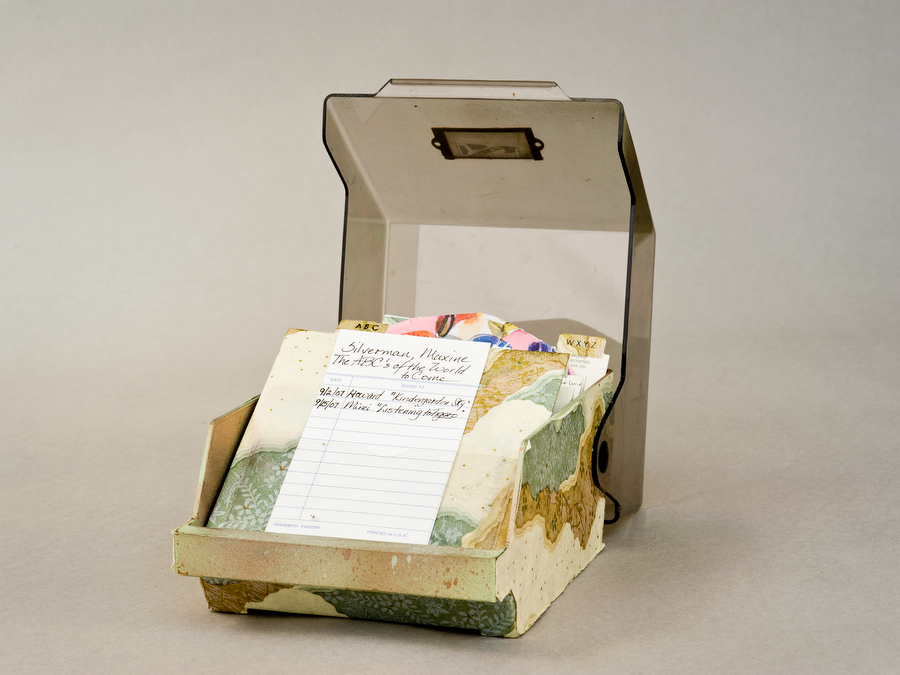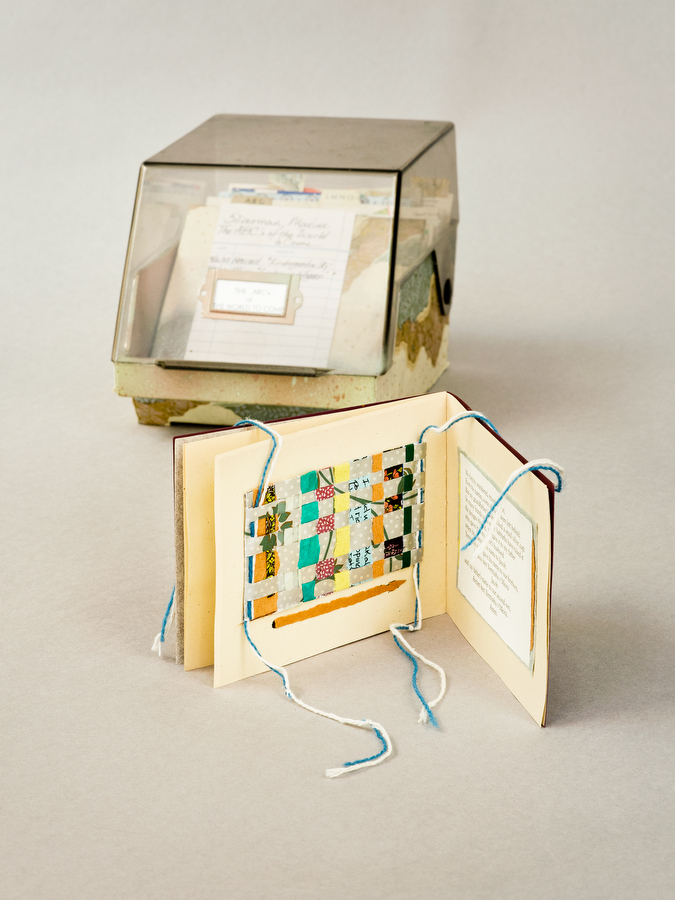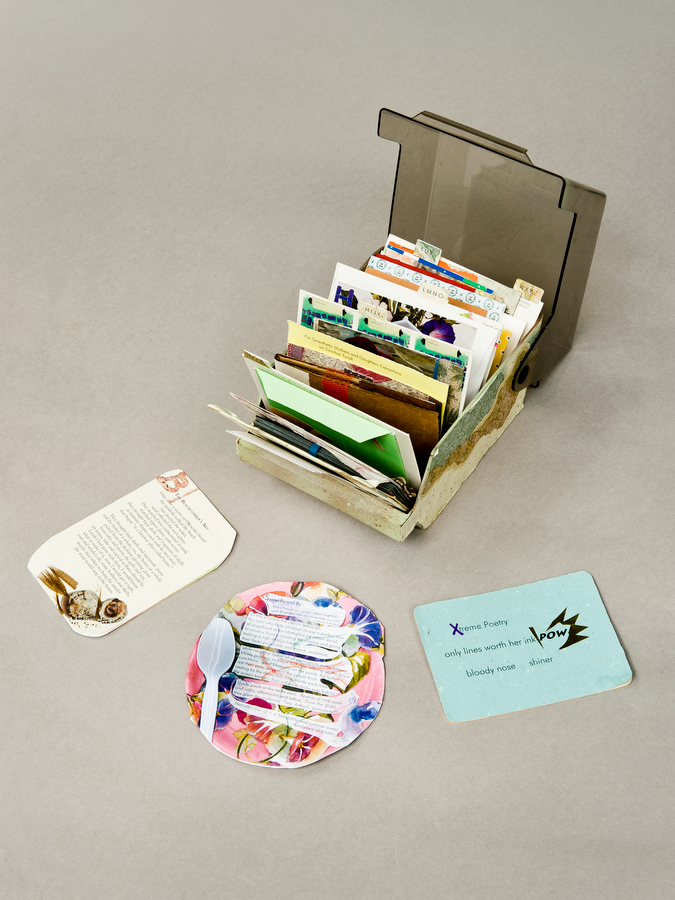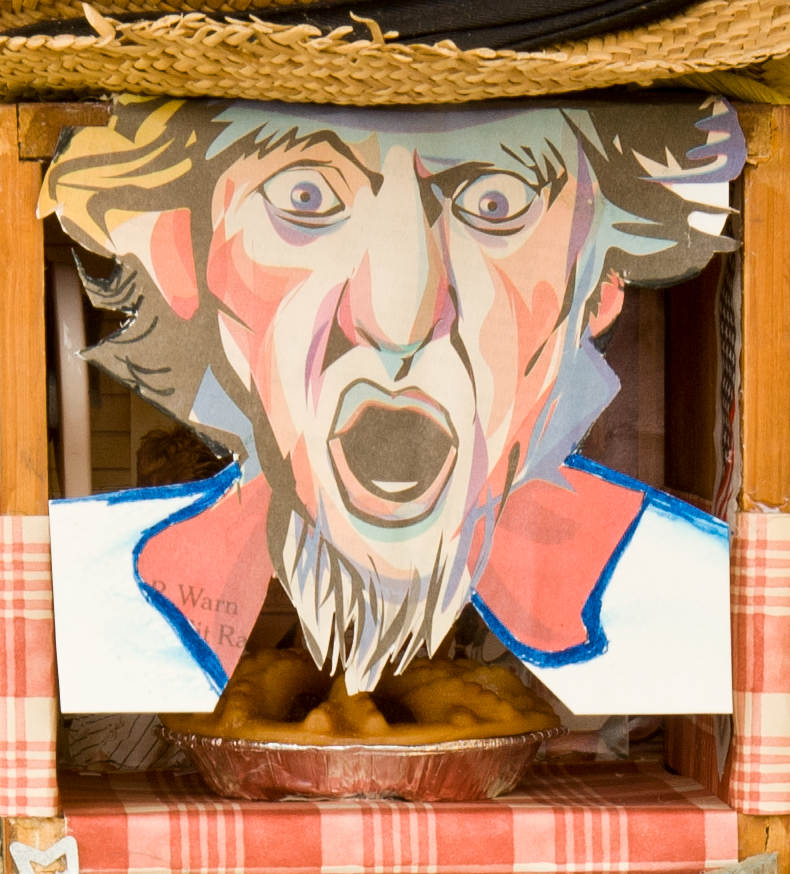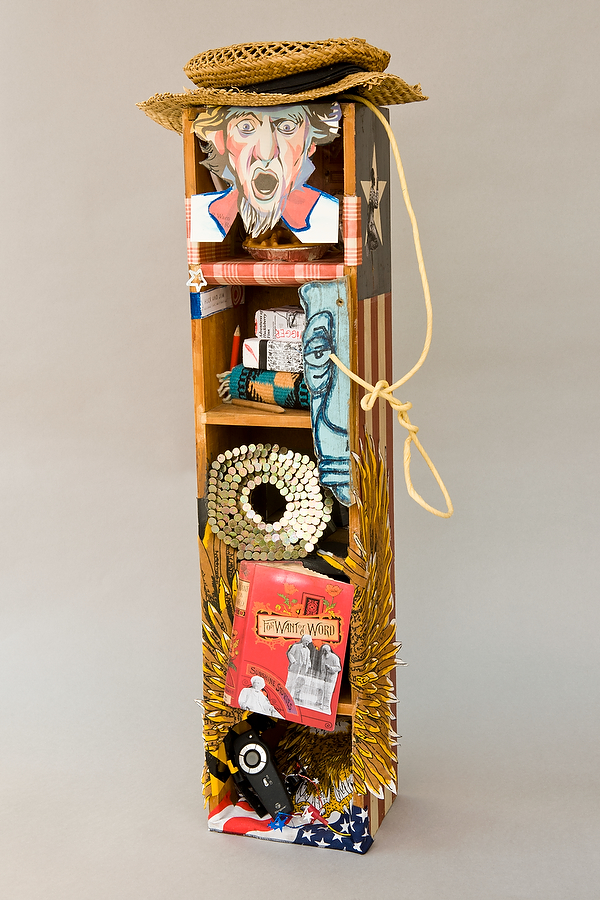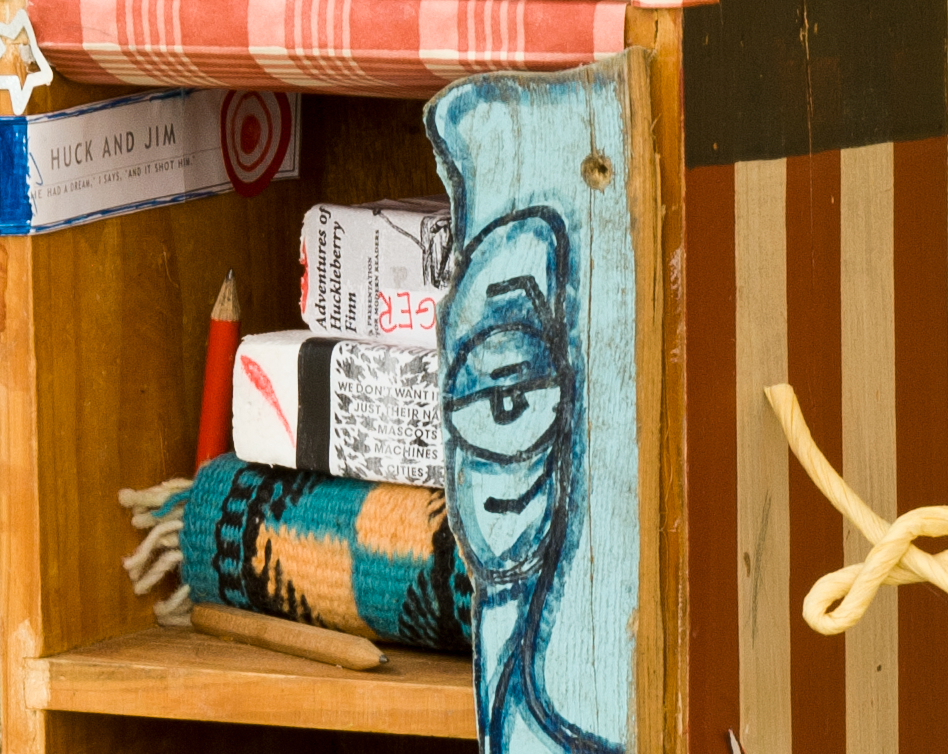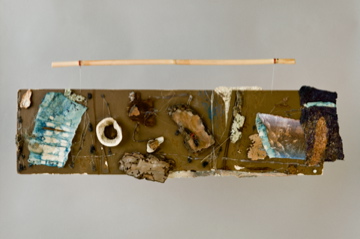Assemblage is, essentially, 3-D collage — a sculptural gathering of objects that are glued, welded, bound, nailed, or in some way joined together. These objects can be organic or man-made. Some might be scavanged or “found” objects — corrugated metal someone brought curbside for trash collectors, a broken toy or cracked mirror, a lost glove or abandoned wheelbarrow — whose shape, color or texture appealed to me for some reason I can’t immediately define or express. I keep them until I understand what they might become.
A mason once confided that stone speaks to him. Of course it does! How else would he carve?
In my work room there is a lyrical twist of copper tubing that became, along with a slab of wood carried home from Amsterdam and a ceramic plate my son made in 5th grade, a visual midrash for Job’s wife. There is a a rusty gear glued to a scrap of roof shingle that formed the central image of a framed self-portrait. On shelves wait a child’s black sneaker, a huge wasp nest, several pieces of driftwood, a book that was salvaged from a neighbor’s flooded basement (among many others) which have not been used yet. Some I chose myself, others, such as the delicate skull of a bird and 4 tubes of ruffled cardboard, were gifts.
The term assemblage was first used by French artist and writer Jean Dubuffet in 1953, but as early as 1913, when Picasso combined a bicycle seat with its handlebars to evoke a bull, such assembled work has been exhibited. The boxes of Joseph Cornell, the grill-constructions of Sari Dienes, or combines of Robert Rauschenberg are other examples of assemblage.

